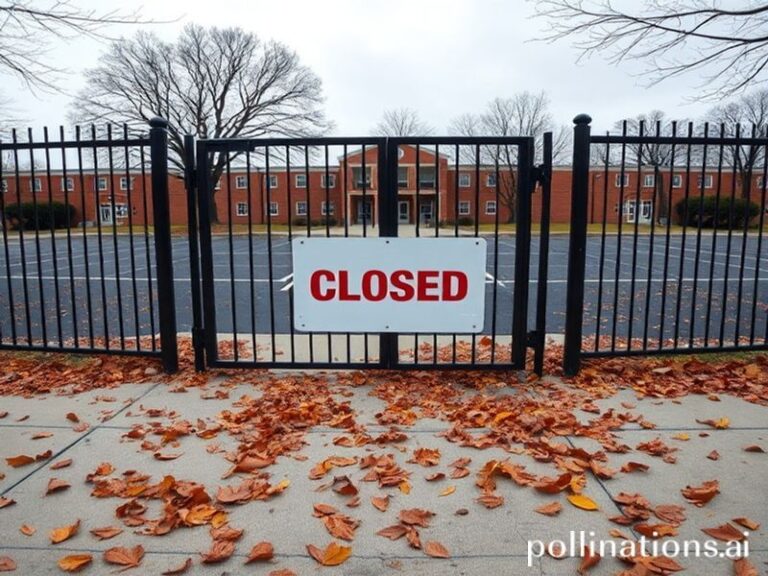Presumed Innocent: The World’s Favorite Legal Fiction, Now on Sale in 195 Flavors
In the grand bazaar of global justice, the phrase “presumed innocent” sits like a slightly dented brass plate on a velvet cushion—polished daily, admired by tourists, and quietly scratched by those who actually have to use it. From The Hague to Harare, from the marble temples of Strasbourg to the prefab courtrooms of Ulan Bator, this four-century-old legal souvenir is still being hawked as the crown jewel of civilisation. Whether anyone still believes the sales pitch is another matter.
Start with the obvious: the presumption is not equally presumptuous everywhere. In Sweden, you can be formally charged yet still collect your child benefit; in Japan, prosecutors enjoy a 99 % conviction rate that makes Las Vegas slot machines look generous; and in a growing list of jurisdictions—think Turkey, think Egypt—being presumed innocent is less a right than an act of international lobbying. The Global North likes to describe the doctrine as “universal,” which is diplomatic shorthand for “works best with espresso and a functioning appeals court.” The rest of the planet nods politely and checks the foreign-exchange rate on justice.
Look at the numbers. According to the World Prison Brief, roughly one-third of the world’s inmates are “pre-trial detainees,” a bureaucratic euphemism for people who have not been found guilty of anything except poverty, poor timing, or the wrong surname. In the Philippines, Rodrigo Duterte’s drug war turned “innocent until proven bullet-riddled” into a macabre punch line. Meanwhile, in the United States—the same republic that exports courtroom dramas the way France exports perfume—cash bail keeps half a million citizens caged on any given day because, apparently, liberty is a subscription service with a hefty down payment.
Technology hasn’t helped. Algorithms now rate your likelihood of recidivism before the ink on the charge sheet is dry. In China’s smart-court pilot programmes, AI “judges” deliver verdicts in under 15 minutes, which is roughly the time it takes a barista in Brooklyn to misspell your name. The European Union, ever the conscientious objector, has drafted regulations to ensure that due process survives the digital transition—drafts that will be binding right up until the next lobbying festival in Brussels.
The geopolitical spice is in the sauce. When the International Criminal Court issued arrest warrants for Vladimir Putin, the Kremlin responded with a straight face that the ICC had no jurisdiction because Russia never ratified the Rome Statute—an argument akin to claiming the fire brigade can’t hose down your dacha because you never subscribed to the fire department’s newsletter. Across the Black Sea, Ukraine happily welcomes ICC investigators while simultaneously running its own war-crimes tribunals, proving that selective outrage is a renewable resource.
Then there is the court of public opinion, now in session 24/7 on five continents and several encrypted apps. Trial by Twitter has reduced the presumption of innocence to a polite suggestion, like covering your mouth when you yawn. In Brazil, live-streamed hearings turned Supreme Court justices into reality-TV stars; in India, WhatsApp forwards have convicted more people than the actual courts. The algorithm rewards outrage, and outrage has the memory span of a fruit fly on espresso.
And yet, the phrase endures—tattooed on courthouse facades, quoted in op-eds, whispered by parents to children who may never see the inside of a proper courtroom. Perhaps that is the final, darkest irony: the only place the presumption of innocence remains truly inviolate is in the abstract. Once humans enter the equation—greedy, tribal, occasionally well-meaning humans—the brass plate tarnishes faster than campaign promises after election day.
So the next time you hear a politician intone that “every suspect is innocent until proven guilty,” treat it the way you would a three-for-one deal on oceanfront property in Switzerland: admire the audacity, check the small print, and keep one hand on your passport. The world keeps spinning, the jails keep filling, and somewhere a judge is banging a gavel that sounds suspiciously like a cash register. Presumed innocent, after all, is just the opening bid. The house always wins.







